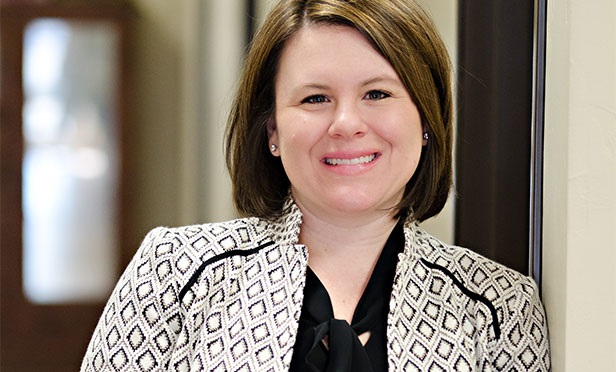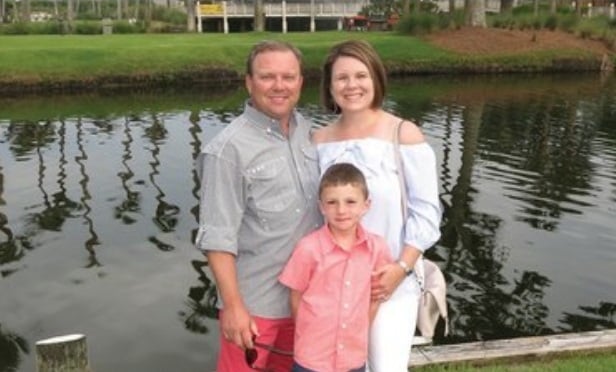 Allison Butler is vice president at Butler Benefits & Consulting, a next-generation health care consulting firm focused on bringing higher quality benefits to employers at lower costs.
Allison Butler is vice president at Butler Benefits & Consulting, a next-generation health care consulting firm focused on bringing higher quality benefits to employers at lower costs.
Paul Wilson: How did you get your start in the benefits industry?
I come from a family of entrepreneurs, so I've spent a lot of time around people who are comfortable with risk. My mom strongly encouraged me to join the insurance industry, because my parents' business is in retail, so if the doors aren't open, they're not making money. But she had friends in the insurance business and saw the lifestyles that afforded them.
Related: Taking flight: The next generation of broker entrepreneurs
I went to Texas A&M and at that time, they didn't have a degree in insurance, so I majored in business. The summer of my sophomore year, I found a spot in the benefits world to intern during the day, and then I worked as a hostess in the evenings. I'm one of the weird ones; I wanted to go into insurance and I actually did it.
After college, I worked at a couple different agencies. During this time, I met my future husband, Josh. From the time we started dating, we talked about starting our own business. In 2015, we decided to go for it. We've had a lot of fun building our business together. We feel very blessed that we had this opportunity.
PW: How has your journey so far helped shape your mindset as a broker and business owner?
We've made lots of mistakes along the way, but through those experiences, one of the most important things I've learned is that we're never going to reach a point where we have everything figured out. If we're not constantly evolving and reassessing our business, our team, our clients and our goals, then we're not in a good place. We always need to keep learning.
PW: What have been the highlights/struggles of striking out on your own?
We've really enjoyed building something from scratch together. Looking back over the last four years, a lot of satisfaction comes from seeing how we got here.
As far as struggles go, there's a quote from Kevin Trokey: "What got us here won't get us where we want to go." Our company is now at a point where we can refine it and be more selective about our clients to ensure their values align with ours. That involves us learning new things and getting buy in from prospects and clients.
I met with a client about their renewal. We were visiting about an RBP plan, and they just weren't ready. They said, "We're not there yet but we want to talk about it next year." It just scares them a bit.
So with some of the great solutions we have, certain clients and prospects just aren't ready yet. And you can't force them.
PW: Are you starting to see more employers that are open to these ideas? How do you meet them where they are but still move them forward?
Within our own book of business, we've identified the clients we believe are more receptive to change; the early adopters. We present these ideas to everyone, but it's good to know heading in which companies are likely to be more open to new ideas and change. We have a great illustration of the spectrum that clients are on and how you can move them toward where you think they need to be. I'm going to start bringing it with me to meetings. One client is already on a level premium self-funded plan, and has been for four years. It's really worked well for them. But I referenced the spectrum and we talked about the next step and what it would mean to them and their employees.
Year by year, the more we work toward this goal as advisors, more larger groups will buy in and that will be a great thing for our communities. We have one large, prominent hospital that's not open to the RBP idea, which is concerning. They've taken a tough stance so far but as more employers get on board, it will start to change the conversation.
PW: What are some of the other industry trends and changes you're watching?
Transparency is obviously a big one. Josh became a Health Rosetta advisor a few years ago. I remember when he came to me and said we should start disclosing all of our compensation. When he first told me, I was skeptical and it seemed like it would lead to some awkward conversations. But I understood why we needed to take that step and so we did.
The first few times we had that conversation, I felt like it was awkward, but every time I had it, they would say, "That's all you make?"
Now, not having that conversation feels awkward to me. How can we demand transparency from other parties if we don't do it ourselves? I'd never go back to not doing it.
Another thing that's exciting to me is that for the past few years, we've had a direct-primary care doctor in our city, which is pretty cool, since we're not that big. We both go to her and have referred many people to her. Recently, two more doctors have moved to that model.
We referred one client to our DPC doctor almost two years ago. She gets sick and put into the hospital every winter with some kind of upper respiratory thing. Last open enrollment, she told the entire office, "My relationship with Dr. Moore saved me being in the hospital for at least a week." Dr. Moore came to her house, taught her husband how to give her breathing treatments and taught her all these different things she needed to know. Sometimes, people say, "That doesn't really help, because it doesn't hit your plan." I asked her, "How does it feel that you've paid this money but it didn't go toward your deductible?" She said, "She kept me out of the hospital. My deductible is $5,000. I probably spent $200 trying to get well and I don't care if it hits my insurance or not. I'm better."

PW: Our health care system is in bad shape. How do you stay motivated to fix things?
I'm invigorated by the individuals we're helping. So when we find a non-insurance pharmacy solution for a family and it saves them $400 a month, and they're so ecstatic about it, that makes me love what we do.
PW: Are you optimistic things can be fixed?
Honestly, I don't get in the weeds about all the politics. To me, that's overwhelming and often too negative. What I do focus on is the innovative non-insurance solutions that surround that and help it become better.
I don't know where things are headed, whether we'll be single-payer at some point in the future. I don't think about that very much. Health care is so complex; we're involved with it every day and it still seems complex to me. There will always be a need for our role in some capacity, but we're going to have to evolve to become what people need.
What we're doing now is unsustainable, but there will always be a need for a consultant in some capacity. So as long as we're staying on the cutting edge and evolving, there will be a place for us.
PW: What are your favorite things about your job?
I love our employees. We have a really great team and we have fun at work. It's a fun environment. We couldn't operate without our team or accomplish our goals as an organization if they weren't here to help us.
I also love our clients. Having a personal relationship with them is what makes me tick. I had a client on the phone yesterday who was crying. She's six months pregnant, they're farmers, they have a marketplace plan and have reported negative income, so they're losing their tax credit. She said, "I have a history of miscarriages, I don't want to switch doctors, and I can't pay $900 a month in premiums. What can I do?" Do we make much money from helping her with this? Absolutely not. But it tugs at my heart to help her somehow. So I'm going to.
It can be scary. If you're encountering the health care system, it's not typically for fun. We get to help people deal with that, and I love it.
And our industry provides a lot of flexibility. We work hard but I am able to spend a lot more time with my son than I would in other industries. We have a great work/life balance.
PW: Where do you look for inspiration?
I love to read for fun; it's like a vacation for the mind. I also love being with family, It reminds me that this is why we're in this career.
PW: Finish this sentence: The key to success in this industry going forward is…
To remember why we do what we do and who we work for. At the end of the day, it's about people.
Read more from our Face of Change series:
© Touchpoint Markets, All Rights Reserved. Request academic re-use from www.copyright.com. All other uses, submit a request to [email protected]. For more inforrmation visit Asset & Logo Licensing.






